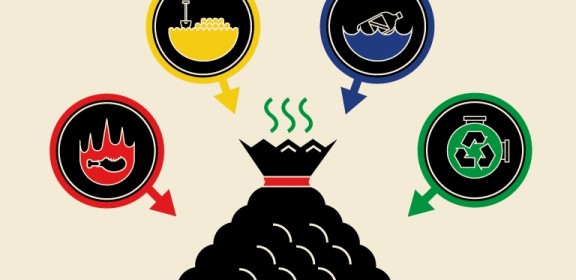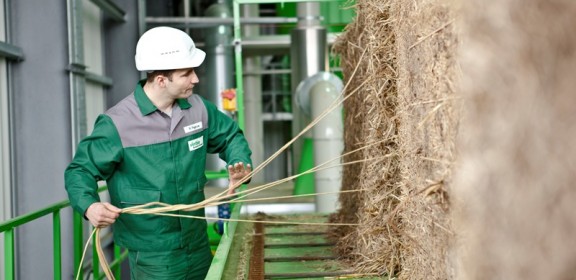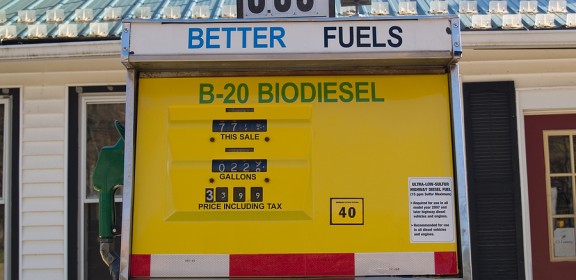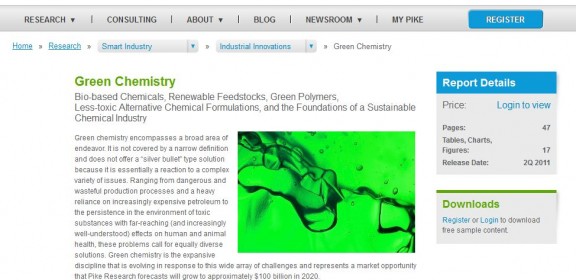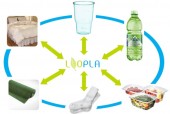Using bioplastics for packaging, cases of electronic or medical devices and similar purposes is an increasing opportunity to turn the plastic processing industry towards sustainability. Furthermore, this will lead to independence from crude oil and makes costs predictable for the long term. Moreover the use of biopolymers is currently very trendy.
But generally, manufacturing of plastics requires a variety of additives for different purposes. Masterbatches for coloring, surfactants to stabilize emulsion polymers, polymerization modifiers to influence molecular weights, plasticizers to increase flexibility, lubricants to minimize frictional forces and to improve processability, stabilizers to prevent polymer degradation, light stabilizer and crosslinkers to modify polymer networks are employed profoundly.
The dilemma rises when it comes to the search for suitable additives. Most often the matrix polymer is compostable or biodegradable but the conventional additives are not. In recent years, a couple of companies developed eco friendly additives to replace those derived from fossil fuel. These new additives promise to be appropriate substitutes without loss in performance.
Suisse company Clairant International Ltd introduced RENOL®-compostable colors and CESA®-compostable additive masterbatches. The RENOL-compostable product line includes masterbatches based on over 80 different pigments. CESA-compostable additive masterbatches include UV-stabilizer and antioxidant packages. Application targets for the new products include packaging and single- or limited-use products like plastic utensils, drink cups and pens, where bio-based resins, such as PLA (polylactic acid), currently are being specified.
Arkema Inc. has selected the Bioplastics Division of Teknor Apex Company as a preferred supplier of masterbatches incorporating the company’s Biostrength® additives for polylactic acid. Arkema’s Biostrength® additives product line currently includes a clear impact modifier; an impact modifier for opaque injection molding applications; a melt strength enhancer for improving the processability of foams, films, fibers, and thin-sheet extrusion and thermoforming; and a metal release agent that reduces sticking on extrusion and molding equipment. Teknor Apex will supply masterbatches based on these additives under its Terraloy™ bioplastics brand name.
The Cleveland based PolyOne Corporation, a provider of specialized polymer materials, announced last year that its OnColor™ BIO and OnCap™ BIO masterbatches have been granted OK Compost certification by AIB Vinçotte, marking the first time this has been awarded to a full range of colorants and additives. AIB Vinçotte, an independent inspection organization, grants OK Compost certification after verifying that a product meets EN 13432, a standard for compostability recognized in Europe, Asia and North America.
In 2010, Archer Daniels Midland Company (ADM) has begun offering isosorbide under its line of Evolution Chemicals™. Isosorbide is an industrial ingredient made from corn that is a potential alternative to the petroleum-based chemical Bisphenol A in plastics and other applications. ADM is the first company in North America to offer renewable isosorbide on a commercial scale. Bisphenol A is among the most controversial polymer additives. The U.S. Food and Drug Administration and European authorities have expressed concerns about the potential health effects associated with this additive.
Also in 2010, specialty chemicals producer Rhodia has introduced Rhodoline® OTE, APE-free (Alkyl Phenol Ethoxylates) and zero-VOC additives (Volatile Organic Compounds), that extend waterborne coating open time two to four fold and enables the formulation of highly performing low to zero VOC coatings. This low odor eco-friendly solution has been developed to design sustainable coatings, being compliant with Green Seal (GS-11) or EU eco-label requirement.
At the K Fair 2010, Brazil’s Cromex launched its new lines of color compounds and additives developed for bioplastics made from green polyethylene (PE derived from sugar cane ethanol) and the biodegradable resins based on polylactic acid, derived from plants.
The Canadian Green Club Inc. markets the Add-iFlex System. Add-iFlex is a thermo-oxidative additive system for polyolefins. In a compost environment the temperature and oxygen present will initiate the molecular breakdown of the polymer. Watch the video to get more information:
All of the companies mentioned above introduced their products within recent years. As the development, marketing and application of sustainable polymer additives have just begun, it seems to be obvious that a lot more will follow soon.

